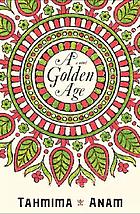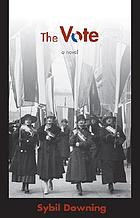Tagged with historical fiction
Painted Girls, the
author gender:
book type:
medium:
Clockwork Prince
Before I get into my review I need to whine about a weird glitch in NYPL's hold request system. I had a copy of Clockwork Prince checked out from Seward Park, which has a great teen section, btw, and sadly it came due before I was finished. The library system holds 67 copies of the book and is currently listing 27 available, which is probably similar to the number that were available when I attempted to renew the copy I had checked out. I say "attempted" to renew, because the system wouldn't let me. Since there were two or so holds on the book at the time, I was unable to renew the copy I had in hand, even though there were at least twenty copies on shelves in NYPL's circulating collection, including another copy at Seward Park. In order to continue reading the book, I returned the copy I couldn't renew to Seward Park and picked up their other copy, which was right on the shelf where it was supposed to be. Wtf, NYPL?
author gender:
medium:
Golden Age, a
No one’s conscience escapes unscathed from war, not even a loving mother and shelterer of freedom fighters. I found Rehana’s story hard to get into at first, and I recommend other readers brief themselves on Bangladesh’s fight for liberation before digging in. With a little patience I did grow to care about Rehana, her son and daughter, and her various friends and neighbors.
author demographic:
author gender:
book type:
medium:
recommendation:
Vote, the
Why is historical fiction looked down upon in publishing? Because women like it? I like it. I think it’s a great way to get a taste of important events and eras. This retelling of the U.S. woman suffrage movement is told in three voices: Lucy Burns, Mary Daly, and Kate Brennan. Brennan, a recent Bryn Mawr grad who somewhat accidentally gets arrested at a White House protests and spends two weeks in prison as a result carries most of the book.
author gender:
book type:
medium:
recommendation:
Wish After Midnight, a
Hrm. I'm not really sure what to make of this book. It's a pretty good read with a reasonably compelling narrator, but plot doesn't quite gel. The ending left me mystified, and not in that cool dazed way where you contemplate what might happen next. Instead we're left with what essentially feels like a "to be continued," which I would have thought the author would be too classy for.
Anyway, Genna is a smart and solitary African- and Panamanian-American teenager growing up in early 21st century Brooklyn who gets transported back in time to more or less the same location, just before Christmas in 1862. She ends up working for a white doctor as nursemaid to his child and as a sort of nurse-in-training in his practice. (She wants to become a doctor, a psychiatrist specifically, a notion Dr. Brant thinks is absurd. Negroes' heads are small than white peoples', so they aren't capable of being as smart. Same with women vs. men.) She has two potential love interests, one from the present, and one from the future/past, who manages to find her in the 19th century.
author gender:
medium:
author demographic:
Water for Elephants
93 (or 90)-year-old Jacob Jankowski's narrative takes us on the road with a depression era second or third rate circus, with which he served as veterinarian in his early 20s. The book was interesting and absorbing. I quite enjoyed it. Do you sense a however coming on? However, I'm not sure I really get why the back and forth between the circus and the nursing home.
"But then in your thirties something strange starts to happen. It's a mere hiccup at first, an instant of hesitation. How old are you? Oh, I'm--you start confidently, but then you stop. You were going to say thirty-three, but you're not. You're thirty-five. And then you're bothered, because you wonder if this is the beginning of the end. It is, of course, but it's decades before you admit it.
"You start to forget words: they're on the tip of your tongue, but instead of eventually dislodging, they stay there. You go upstairs to fetch something, and by the time you get there you can't remember what it was you were after."
"They're eight-pagers.
"A crudely drawn Olive Oyl lies on a bed with her legs open, naked but for her shoes. She spreads herself with her fingers. Popeye appears in a thought bubble above her head, with a bulging erection that reaches to his chin. Wimpy, with an equally enormous erection, peers through the window."
author gender:
book type:
medium:
recommendation:
free:
Rivington Street
Rivington Street starts out in pogrom ridden Russia and follows one family to the early twentieth century Lower East Side, with its pushcarts and Yiddish socialism. It is to some extent a tale of two sisters, one a garment factory union organizer and the other an aspiring clothing designer, a boss. The other strong women characters are the daughter of a selfish and sexist rabbi, a gentile suffragist, and Hannah, the old world mother of the two sisters, Sarah and Ruby Levy. I've read it a bunch of times, and it never disappoints me. I love entering the world of my grandfather's Lower East Side and the early struggles of the women's labor and suffrage movements.
We work as hard as any man; we think as well as any man; and we want every right and privilege the men have, including the privilege of making fools of ourselves every four years as they do by voting for capitalist parties that keep the chains fastened around their necks! p.255-56


